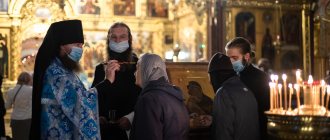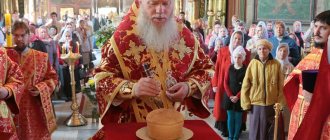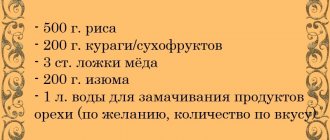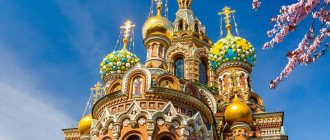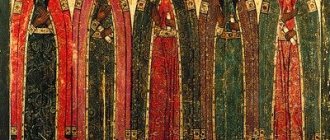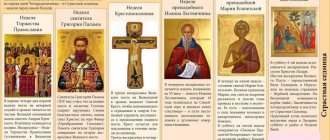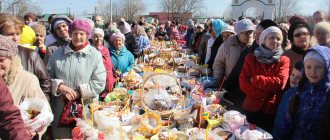Easter
Easter is the most important holiday of Christianity. In 2021 it falls on Sunday, May 2.
Photo source: Pixabay
On this holiday you cannot engage in heavy physical labor. The clergy also advise putting aside household chores.
On Easter it is not recommended to quarrel, offend or be offended. The task of every Orthodox Christian is to share the joy of the holiday, the clergy notes. Therefore, on this day you should not neglect works of mercy.
At Easter, eggs are traditionally painted in different colors. As Orthodox priest Sergei Senchukov said, each of them carries its own meaning. Red is the main color for Easter services. It has a solemn meaning, but at the same time it recalls the death of the Savior on the cross and his resurrection. The green color is dedicated to the saints, the blue color to the Mother of God.
Photo source: Pixabay
Russian Orthodox Church
print version
2nd Sunday of Easter, Apostle Thomas.
Calendar notes:
From this day until Easter is celebrated, at all services that begin with the exclamation of the priest, as well as before the start of the Six Psalms, “Christ is Risen...” is sung or read three times. On all Sundays before Easter, I don’t sing “The Most Honest.”
Order of readings, according to the calendar:
At Matins, magnification: “We magnify You, Life-Giving Christ, for our sake you descended into hell and raised everything with Him.” "Cathedral of Angels" is not sung. According to the Gospel - “I saw the Resurrection of Christ” three times (so on all Sundays until Easter). Canon of the holiday (Fomina Week, not Easter). Catavasia “Resurrection Day...”.
26. 2nd Sunday of Easter, Apostle Thomas. Anti-Easter. Commemoration of deceased soldiers[156].
Sschmch. Vasily, bishop Amasian. St. Stephen, bishop Velikopermsky. St. Ioannikiy Devichensky (service on December 2). Celebration[157] of Our Most Holy Lady Theotokos for the sake of the Athonite miraculous icon of Her, called “Sweet Kissing”[158].
The entire service of the holiday (according to the Triodion).
Note.
“It is appropriate to sing, as in this holy second Sunday of Antipascha: the Sunday one is not sung, but the entire holiday” (Typikon, chapter 50, “Antipascha Week”).
Note.
The services of the saints that took place on Sundays during the Pentecost period are transferred to Compline (cf.: Typikon, chapter 50, “Sunday of Antipascha”, 4th “see”); This instruction from the Typikon, however, does not apply to the services of the vigil and polyeleos saints.
On Saturday evening, before the 9th hour (and Little Vespers), the royal doors are closed[159]. The 9th hour reads the usual three-psalm. On it is the Sunday troparion in the 8th tone: “From on high you came down...”, and the Easter kontakion: “Even to the grave...”.
At Great Vespers
at the exclamation: “Glory to the Holy Ones and Consubstantial...”, “Christ is risen from the dead...” is sung (three times), and the opening Psalm 103. (“Come, let us worship” is usually omitted.)
“Blessed is the man” - all kathisma.
On “Lord, I cried” the stichera of the Triodion, tone 1 and tone 2 – 10 (the first four stichera – twice). “Glory, even now” - Triodion, tone 6: “By closed doors, you have come, O Christ...”
Entrance. "Quiet Light" Prokeimenon of the day, tone 6: “The Lord reigns…” (with verses).
At the litia there are stichera of the Triodion, tone 4 and tone 8. “Glory, even now” - Triodion, tone 8: “By the closed door, by the disciples gathered...”.
On the stichera are the stichera of the Triodion, tone 4 (with its own choruses). “Glory, even now” - Triodion, tone 5: “Loving mankind, great and unused...”. (Easter verses are not sung.)
According to the Trisagion - troparion for the holiday of Triodion (Antipascha), tone 7: “The tomb is sealed...” (three times).
At the cry: “The blessing of the Lord is upon you...”, the singers: “Amen.”
Note.
Here, according to the Charter, the reading is required: “The Acts from the beginning or the conversations of Chrysostom from the beginning are revered” (Typikon, Chapter 50, “Antipascha Week”). “Be aware that from the Sunday of Holy Pascha, even until the Sunday of All Saints, with the blessing of the loaves, the Acts of the Saints are revered by the Apostle. In the remaining Weeks of the entire summer, the seventh Cathedral Epistles of the Apostles, and the fourteen Epistles of the Holy Apostle Paul, and the Revelation of the Holy Apostle John the Theologian are venerated” (Typikon, chapter 2, 1st “see”). The Typikon does not stipulate the reading order.
Reading is done as follows. Reader: “Bless the apostle, father, read the Acts of the saints.” Priest: “Through the prayers of our holy fathers...” Reader: “Amen,” and the reading begins. At the end of the reading, the reader: “To our God be glory always, now and ever, and unto ages of ages.” Another reader (according to the Typikon - primate): “Amen.”
“Christ is risen from the dead...” (three times), and the Six Psalms begin: “Glory to God in the highest...”.
At matins
on “God is the Lord” - the troparion of the holiday of Triodion (Antipascha), tone 7: “The tomb is sealed...” (twice). “Glory, even now” is the same troparion.
Kathismas 2nd and 3rd. Small litanies. Sedals of the holiday (Triodion).
Polyeleos. Magnification: “We magnify You, Life-Giving Christ, for our sake you descended into hell and raised everything with You,” and the chosen psalm. (Sunday troparia “The Council of Angels...” are not sung.) Sedalen Triodion in Polyeleos, tone 1: “Seeing My ribs and the wounds of the nails...”. “Glory, even now” – the same sedal. Degrees - 1st antiphon of the 4th tone. Prokeimenon, tone 4: “Praise, O Jerusalem, the Lord; praise thy God, O Zion”; verse: “Fortify the chains of your gates.” Sunday Gospel 1st – Matthew, ch. 116. “Having seen the Resurrection of Christ...” (three times). According to Psalm 50: “Glory” - “Through the prayers of the apostles...”; “And now” – “Through the prayers of the Mother of God...”. “Have mercy on me, O God...” [160], and the resurrection stichera, tone 6: “Jesus is risen from the grave...” (once).
Canon of the holiday of Triodion (Antipascha), tone 1: “Let us drink, all people...”, with irmos on 14 (irmos twice).
Bible songs “We sing to the Lord...”.
Easter Catavasia: “Resurrection Day...”
According to the 3rd song - ipakoi of Antipascha, tone 6: “For in the midst of the disciples...” (once).
According to the 6th canto - the kontakion of the holiday of Triodion (Antipascha), tone 8: “With a curious right hand...”, and ikos, the same voice: “Who preserves the disciple’s hand...”.
I won’t sing “The Most Honest” for the 9th song. (The usual incense is performed.)
Note.
In all the Weeks (i.e. Sundays) before Easter is celebrated, “The Most Honest” is not sung at Sunday Matins. Every church ceremony takes place on the 9th song of the canon.
According to the 9th song - “Holy is the Lord our God” (in tone 1). Svetilen Triodi: “My ouds...” (twice). “Glory, even now” - the luminary Triodion: “Today spring is fragrant...”.
“Every breath…” and psalms of praise.
On the praises of the stichera of the Triodion, tone 1 - 4 (the first stichera - twice). “Glory” - Triodion, tone 6: “After the days I have destroyed Your rise...”, “And now” - “Most blessed art thou...”.
Great doxology. According to the Trisagion - troparion for the holiday of Triodion (Antipascha), tone 7: “The tomb is sealed...” (once). Litany, and dismissal: “Christ, our True God, risen from the dead, through the prayers of His Most Pure Mother, the holy glorious Apostle Thomas and all the saints...” (the saints of the temple and day are not commemorated).
Before the 1st hour on “Glory, and now” - Gospel stichera 1st, tone 1st: “To the mountain as a disciple...” (see in the Triodion).
Note.
“The litias, that is, the procession into the vestibule, begin today. Likewise, the Announcements of our reverend father Theodore the Studite, in which we sing: “Glory, even now,” the Gospel stichera...” (Triodion Tsvetnaya, on the Sunday of St. Thomas, at Matins, an instruction before the Gospel stichera). “Hark, for lithiums in the vestibule before the 1st hour and the Announcements of the Studites take place. Then the 1st hour, and so on as usual, and a complete dismissal" (Typikon, chapter 50, "Sunday of Antipascha", 3rd "see"). In other words: 1) temporarily interrupted processions into the narthex on Sundays for the reading of the Announcements of the Studites and the 1st hour (the last time such a procession was on Vaiy Week), and on weekdays - for the singing of the lithium for the departed (stopped on Maundy Thursday) are resumed from this day, i.e. from the Week of Antipascha; 2) when there is a reading of the Announcements (i.e. on Sundays), in the narthex the Studite Announcements are first read and the troparion of St. is sung. Theodore the Studite, and then the 1st hour is read; on weekdays, non-holiday days, the 1st hour is first read, and, moreover, in the church, and then there is a descent into the vestibule and there the singing of the lithium for the departed (Rozanov V. Divine Service Charter of the Orthodox Church. P. 676).
The hours are ordinary, three-psalm. (For the features of the clock, see April 25, General notes on the service from St. Thomas Week to the celebration of Easter, paragraph 5.) On the clock there is a troparion and kontakion of the holiday of the Triodion (Antipascha).
Liturgy
St. John Chrysostom.
Note.
“Liturgy happens in earnest, in labor for the sake of the vigil” (Typikon, Chapter 50, “Antipascha Week”).
At the cry “Blessed is the Kingdom...” - “Christ is risen...” (three times). According to tradition, the royal doors are opened for the singing of the troparion.
Note.
“Be aware that from New Week until the celebration of the Easter holiday, the beginning of the Liturgy occurs when the deacon says: Bless, Vladyka. And the priest: Blessed is the Kingdom... and the priest sings: Christ is risen... three times, the entire troparion, except for the verses: May God rise again... The same litany, and other Liturgies" (Typikon, chapter 50, "Sunday of Antipascha").
Great Litany.
Antiphons are figurative.
Blessed are the feast of the Triodion, hymn 3 – 4 (with Irmos) and 6 – 4.
At the entrance: “Come, let us worship... risen from the dead, singing Ti...”.
Note.
During the period from the Week of Thomas until the celebration of Easter, at the entrance of the Liturgy, the following is sung: “Come, let us worship... risen from the dead, singing Ti...”.
At the entrance - the troparion of the holiday of Triodion (Antipascha), tone 7: “The tomb is sealed...”. “Glory, even now” – kontakion of the holiday of Triodion (Antipascha), tone 8: “By the curious right hand...”.
The Trisagion is sung.
Prokeimenon, voice 3: “Great is our Lord and great is His strength, and His understanding is without number”; verse: “Praise the Lord, for the psalm is good; let the praise of our God be sweet.”
Apostle - Acts 14.
Alleluia, tone 8: “Come, let us rejoice in the Lord...”, verse: “For the great God is the Lord...”.
Gospel – John, 65 credits. (XX, 19–31).
Honorer of Easter: “The angel cried out...” - “Shine, shine...”.
Involved: “Praise, O Jerusalem...”.
At the priest’s exclamation “With the fear of God...” - the singers: “Blessed is He who comes...”. Priest: “Save, O God, Thy people...” The singers, instead of “Videhom...” sing: “Christ is risen from the dead...” (once). At the priest’s exclamation “Always, now and ever...” the singers sing: “Let our lips be filled...”. At the exclamation “Glory to Thee, O Christ God...” the following is sung: “Christ is risen from the dead...” (three times). Dismissal, as at Matins.
After the Liturgy, a thanksgiving prayer is performed.
Note.
By the definition of the Bishops' Council of the Russian Orthodox Church on November 29 - December 4, 1994, it was established to perform on Victory Day - May 9 (April 26, O.S.) a special annual commemoration of the deceased soldiers who laid down their lives for the faith, the Fatherland and the people, and all those who died painfully during the Great Patriotic War of 1941–1945.
With the blessing of His Holiness Patriarch Kirill, on this day, at the end of the Liturgy, a thanksgiving prayer service is performed to the Lord God for granting victory in the Great Patriotic War (see the appendix of the “Liturgical Instructions”).
Note.
“At the meal there is great consolation for the brethren” (Typikon, chapter 50, “Sunday of Antipascha”).
The post-celebration of Antipascha Week continues until Saturday.
On the Sunday of Antipascha, Great Vespers is celebrated with an entrance and a great prokeme.
Note.
In the period from St. Thomas Week to the celebration of Easter, vacation at all services begins with the words: “Risen from the dead...”.
156 By the definition of the Council of Bishops of the Russian Orthodox Church on November 29 - December 4, 1994, it was established to perform on Victory Day - May 9 (April 26, O.S.) a special annual commemoration of the deceased soldiers who laid down their lives for the faith, Fatherland and people, and all of them suffered killed during the Great Patriotic War of 1941–1945. 157 See: Menaion-April. M., 2002. Part 2. pp. 317–331. 158 Or “Sweet kiss”, in Greek – “Glycophilus”. 159 In some churches, when closing the royal doors, it is customary to sing the troparion of Antipascha, tone 7: “The tomb is sealed...”. 160 Compare: Rozanov V. Liturgical Charter of the Orthodox Church. P. 674.
← previous day next day →
Bright Week
Bright Week begins on May 3 . It will last until May 9.
This week the weekly posts on Wednesdays and Fridays are canceled. Also, until the holiday of Trinity, believers are not allowed to bow to the ground. It is considered impossible to express all the joy of the Resurrection of Christ in one Easter day, so the Week is celebrated throughout the next week.
These days it is customary to rejoice at the divine resurrection of Christ. You need to think about the bright and good, help the poor and needy, and also relax. But, on the contrary, it is impossible to quarrel with loved ones, get angry and swear. There should be no sadness or negative emotions in your soul.
Photo source: Pixabay
Morning prayers
Remember, Lord Jesus Christ, our God, your mercy and generosity from all eternity, for whose sake you became human, and crucifixion and death, for the salvation of those who believe in you, you endured you deigned; and rose from the dead, you ascended into heaven and sit at the right hand of God the Father, and listen to the humble prayers of those who call upon You with all their hearts: incline Your ear, and hear the humble prayer of me e, Thy unnecessary servant, into the stench of the spiritual fragrance, brought to Thee for all Thy people . And first of all, remember Your Holy, Catholic and Apostolic Church, which You have provided with Your honest Blood, and established, and strengthened, and expanded, multiplied, died, and invincible hell preserve the new gates forever; Calm the tearing apart of the Churches, quench the pagan vacillations, and quickly destroy and eradicate the heresies of rebellion, and turn them into nothingness by the power of Your Holy Spirit. (Bow)
Save, Lord, and have mercy on our God-protected country, its authorities and army, protect their power with peace, and subdue under the nose of the Orthodox every enemy and adversary, and the words peaceful and good in the hearts them about Your Holy Church, and about all Your people: yes Let us live a quiet and silent life in orthodoxy, and in all piety and purity. (Bow)
Save, Lord, and have mercy on the Great Lord and Father of our Holiness Patriarch Kirill, Your Reverend Metropolitans, Orthodox Archbishops and Bishops, Priests and Deacons, and the entire congregation of the Church O Lord, you have appointed me to shepherd your verbal flock, and through their prayers have mercy and save me, a sinner. (Bow)
Save, Lord, and have mercy on my spiritual father (his name), and with his holy prayers forgive my sins. (Bow)
Save, Lord, and have mercy on my parents (their names), brothers and sisters, and my relatives in the flesh, and all the neighbors of my family, and others, and grant them Your peaceful and premium goodness. (Bow)
Save, Lord, and have mercy, according to the multitude of Your bounties, all the sacred monks, monks and nuns, and all those living in virginity and reverence and fasting in monasteries, in deserts, in caves, mountains, pillars , closed the clefts of stones, the islands of the sea, and in every place of Thy dominion those who live faithfully, and piously serve Thee, and pray to Thee: ease their burdens, and comfort their sorrow, and give them strength and strength to strive for You, and through their prayers give Grant me forgiveness of sins. (Bow)
Save, Lord, and have mercy on the old and the young, the poor and the orphans and widows, and those who are in sickness and sorrow, troubles and sorrows, conditions and captivity, dungeons and imprisonments, today in persecution, for the sake of the Orthodox faith, from the tongue of the godless, from the apostate and from the heretics, Thy present servants, and remember, visit, strengthen, comfort, and soon by Thy power will weaken, freedom and deliverance to them. (Bow)
Save, Lord, and have mercy on those who do good to us, who are merciful and nourishing to us, who gave us alms, and who commanded us unworthy to pray for them, and who give us peace, and show Thy mercy to them, the gift I am everything to them, even for the salvation of the petition, and the perception of eternal blessings . (Bow)
Save, Lord, and have mercy on those sent to serve, those who travel, our fathers and brothers, and all Orthodox Christians. (Bow)
Save, Lord, and have mercy on those who have been tempted by my madness, and who have turned away from the path of salvation and led to evil and inappropriate deeds; By Your Divine Providence, return the packs to the path of salvation. (Bow)
Save, Lord, and have mercy on those who hate and offend me, and those who create misfortune for me, and do not leave them to perish for my sake, a sinner. (Bow)
Those who have departed from the Orthodox faith and are blinded by disastrous heresies, with the light of Your knowledge, enlighten and Thy Holy Apostles of the Catholic Church. (Bow)
Red hill
Red Hill in 2022 fell on Sunday, May 9. This holiday is also called St. Thomas Sunday. Red Hill is always celebrated after Easter - exactly a week later.
It is customary to celebrate the holiday noisily and cheerfully. It is customary to have fun on Krasnaya Gorka, organize round dances, sing songs and go on visits. In addition, this is a traditional time for matchmaking and weddings.
This holiday is closely connected with a special memorial day - Radonitsa. It is celebrated on the first Tuesday after the Red Hill celebration.
Radonitsa
In 2022, Radonitsa is celebrated on May 11 . Radonitsa is the first day of special commemoration of the dead after Easter. On this day, it is customary to remember loved ones in the cemetery and with prayer in the temple. You can order a lithium to be served at the cemetery.
According to the theological interpretation, in this way believers congratulate the dead on the holiday of the Resurrection of Christ. This is where another name for the day came from: Parents' Easter.
Photo source: Pixabay
Main Orthodox church holidays in May 2022
Church holidays in May 2022 will be celebrated by many believers in Russia. The main Orthodox celebrations of this month are Easter and Radonitsa. Lent ends on May 1st.
Happy Easter
For Christians, Holy Sunday in 2022 falls on May 2. Orthodox Christians prepare for the celebration 7 weeks in advance - they begin to fast. Easter itself is traditionally celebrated in church. Services in churches begin before midnight, and at 00:00 there is matins.
Interesting!
The easiest way to calculate the date of the celebration is to look at the Alexandrian Easter, an ancient calendar. However, you can independently calculate the day of the Bright Resurrection if you know that the holiday comes after the spring equinox on March 20 and after the first full moon. And, naturally, the celebration of Easter falls only on Sunday.
Colored eggs are an attribute of a festive meal, a symbol of resurrection, new life. In addition, women bake Easter for the holiday - a sweet made from cottage cheese with raisins, dried apricots or candied fruits. Easter is displayed on the table in the form of a pyramid, and is always decorated with the inscription “XV,” which means “Christ is Risen.” This is the memory of the Holy Sepulcher, from which the glow of Christ’s Resurrection rose.
Another delicacy on the festive table is Easter cake, symbolizing closeness with Christ. The entire Easter meal must be illuminated in the church before Easter Sunday during the service.
Radonitsa
In 2022, 9 parental memorial dates are celebrated in Russian churches. On the 9th day after the Great Resurrection, Radonitsa begins. 4th day of commemoration - May 11 (Fomin's Week). On this date, it is recommended to call a clergyman to your family’s grave to serve the litiya. They plan the action in advance, especially in churches where there are a large number of parishioners. It is also necessary to read a prayer for all believers on these divine dates.
On a note!
The main thing is to remember your relatives yourself and go to their cemetery. It is important to remember that “remember” means praying, not drinking alcohol.
A prayer verse about the dead on Radonitsa is read one day in the evening. At all-night evening services there is Parastas (from Greek - “intercession”) or Great Requiem. This is a consequence of prayer for all the dead who believe in God. You need to attend it in person and pray for relatives who have passed on to another world.
At a memorial service, it is allowed to write memorial notes and leave them in the church so that the clergyman can pray for the deceased relatives in the morning, during the liturgy. On Radonitsa in Russia it is customary to give alms and do any good.
All Souls Days
This is the commemoration of the dead in the spring, which occurs on the 9th day after the Great Resurrection. This date is also popularly called Easter. It is customary to remember the deceased at the grave, bring eggs and Easter cakes illuminated in the church, and eat them at the table, remembering deceased loved ones. We must try to feel joy for those who are absent from us, to rejoice at life, which has triumphed over death.
In total, the Christian faith has 8 memorial Saturdays. On these days, services are held to commemorate the dead. The calendar of church holidays for May 2022 is rolling. This means that each year Remembrance Day takes place on a different date, other than perhaps May 9th. But in general, lithiums and memorial services for those who have passed on to another world are held weekly, sometimes even daily.
Commemorations begin from the day of death. The first time is commemorated on the third day - the date of burial, burial. From the cemetery everyone goes to the deceased’s home. When there is not enough space in the apartment, the wake is organized in public catering. At dinner, it is customary to read a prayer verse for the deceased and eat the blessed kutya. They pray for the deceased several times while the funeral is taking place.
Funeral dates after burial are 9 and 40 days. The 40th day is especially important in the Christian faith, when the soul is at divine judgment. In addition, every year the deceased is remembered on the date on which he was born and on the anniversary of his death.
In Christianity, the most important aspect is prayer for the dead. Life on earth is only a transition between eternity; the soul must be prepared to meet the Lord. Since it is unknown where the soul of the deceased went, prayers for forgiveness of sinful acts on earth and granting are important.
On a note!
The Church does not allow the consumption of alcohol when praying for the souls of the dead, explaining that it will harm the soul of the deceased. Therefore, on the dates when relatives are remembered, it is correct to go to the temple and to the grave, after which they remember at a meal and pray for the soul of the deceased.
On Parents' Saturday you should go to church and pray there for the soul of the deceased. After the liturgy, visit the grave of a relative, restore order and leave flowers, light a candle and read the prayer again.
After this, all relatives can dine with prayer, without alcohol. Funerals are also held individually, such as the anniversary of a birth or death. It is recommended to read a prayer for the dead daily; this will help the souls of relatives in the other world.
